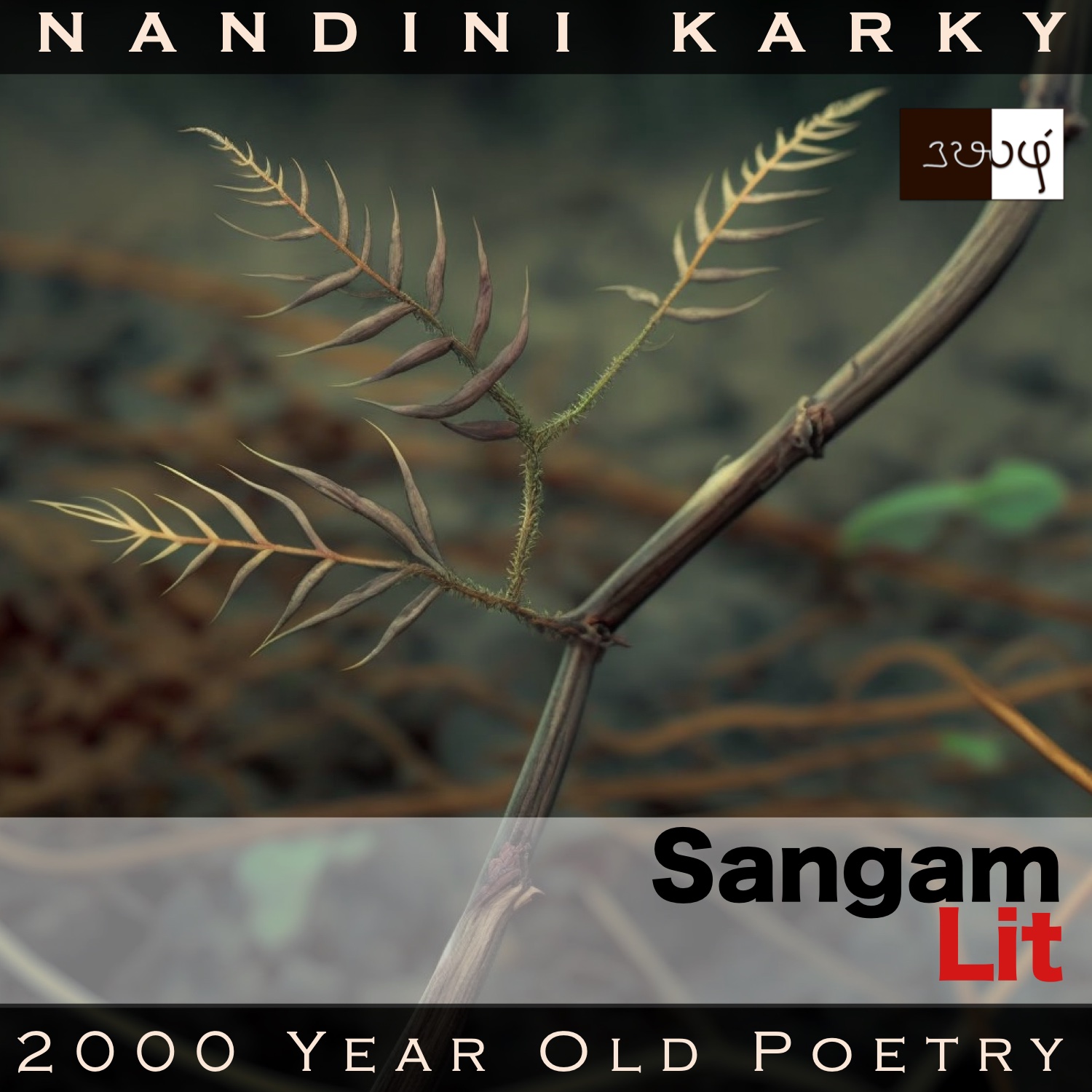Podcast: Play in new window | Download
Subscribe: Apple Podcasts | Spotify | Amazon Music | Android | iHeartRadio | Email | TuneIn | RSS | More
In this episode, we perceive a king’s view on who a great king is, as depicted in Sangam Literary work, Puranaanooru 75, penned by the Chozha king Nalankilli. Set in the category of ‘Pothuviyal Thinai’ or ‘miscellaneous matters’, the verse contrasts the attributes of two types of rulers.

‘மூத்தோர் மூத்தோர்க் கூற்றம் உய்த்தென,
பால் தர வந்த பழ விறல் தாயம்
எய்தினம் ஆயின், எய்தினம் சிறப்பு’ எனக்
குடி புரவு இரக்கும் கூர் இல் ஆண்மைச்
சிறியோன் பெறின், அது சிறந்தன்று மன்னே;
மண்டு அமர் பரிக்கும் மதன் உடை நோன் தாள்
விழுமியோன் பெறுகுவனாயின், தாழ் நீர்
அறு கயமருங்கின் சிறு கோல் வெண் கிடை
என்றூழ் வாடு வறல் போல, நன்றும்
நொய்தால் அம்ம தானே மை அற்று,
விசும்புற ஓங்கிய வெண் குடை,
முரசு கெழு வேந்தர் அரசு கெழு திருவே.
A crisp song in the voice of a Chozha king! His words can be translated as follows:
“Saying, ‘Death has snatched away all my ancestors and fate has given me the old victory of gaining the rightful rule over this domain. Indeed, I have accomplished something great’, if a ruler demands high taxes from his people, then he is nothing more than a petty person, having only power without intelligence. To him, ruling over his people becomes an unbearable burden.
But if the domain were to be ruled by an estimable person, who has the strong will to attack and wage war on others, akin to a dried-up twig on the slender ‘netti’ plant under the hot sun, near an almost barren pond with sparse water, it becomes so very light for that king, the possessor of war-drums, and whose white umbrella soars to the skies, to rule over the wealth brimming in his country.”
Time to delve into the nuances herein. The king starts by sketching the attitude of a ruler who thinks that since his predecessors have met their end at the hands of Death, he is now the rightful monarch of the domain and celebrates this as if it’s a great victory earned by him, and also, demands huge amount of taxes from his subjects. Such a king, whom Nalankilli calls as ‘small-minded’ says is not fit to reign over the wealth of that land.
Turning away from this unflattering sketch of a king, Nalankilli now talks about another kind of king, one, who has the strength and will to engage enemies in battle. He says, for this monarch, ruling the land is easiest thing in the world, and explains further that for this valorous king, with his sky-soaring umbrellas and resounding war drums, reigning over the wealth of his country would be as light as a dried twig of the ‘ven kidai’ plant, growing near a waterless pond in summer.
On researching about this plant mentioned by the king, I learnt that it is identified with its contemporary Tamil name ‘Netti’ and goes by the name of ‘Sola’ or ‘Shola’ in other Indian languages. The curious thing about this plant with the botanical name ‘Aeschynomene Aspera’ is that many scientific resources describe this as being ‘one of the lightest woods in the world’ and also ‘as light or even lighter than the thermocol’ used in packaging today. It’s one of those moments when Sangam Literature stuns me with its knowledge of the natural world. And here, Sangam poets stand shoulder to shoulder with modern scientists in the breadth and depth of their understanding! Isn’t it also fascinating how a dry, scientific fact such as this is presented with so much poetic elegance, talking about an entirely different thing?
Speaking of which, let’s turn to the crux of the verse which outlines for us who a great king is. While we may not agree with the glorification of war-seeking tendencies of such a king, what is relevant even today is in how a leader should not take for granted the privilege they have. In a world without kings having absolute power, each of us is a king in our own right. And, like this thoughtful verse guides us, instead of only enjoying the privileges, small or big, we have gained because of our birth, a good question to ask would be, ‘What can I do to be worthy of what has come my way because of no effort of mine?’




Share your thoughts...